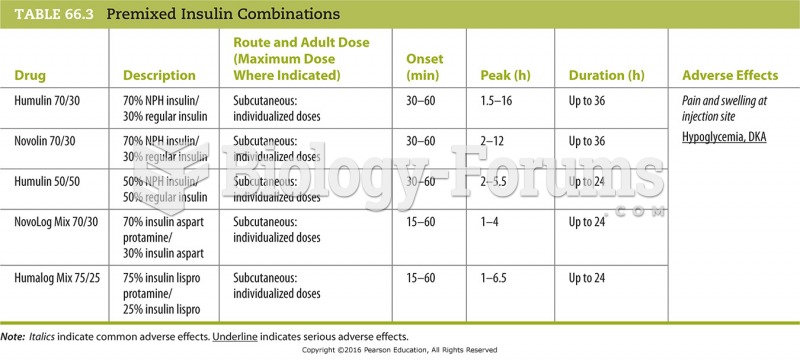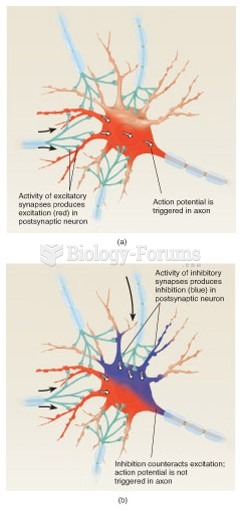|
|
|
The average adult has about 21 square feet of skin.
Parkinson's disease is both chronic and progressive. This means that it persists over a long period of time and that its symptoms grow worse over time.
The use of salicylates dates back 2,500 years to Hippocrates's recommendation of willow bark (from which a salicylate is derived) as an aid to the pains of childbirth. However, overdosage of salicylates can harm body fluids, electrolytes, the CNS, the GI tract, the ears, the lungs, the blood, the liver, and the kidneys and cause coma or death.
The first oncogene was discovered in 1970 and was termed SRC (pronounced "SARK").
More than 34,000 trademarked medication names and more than 10,000 generic medication names are in use in the United States.







